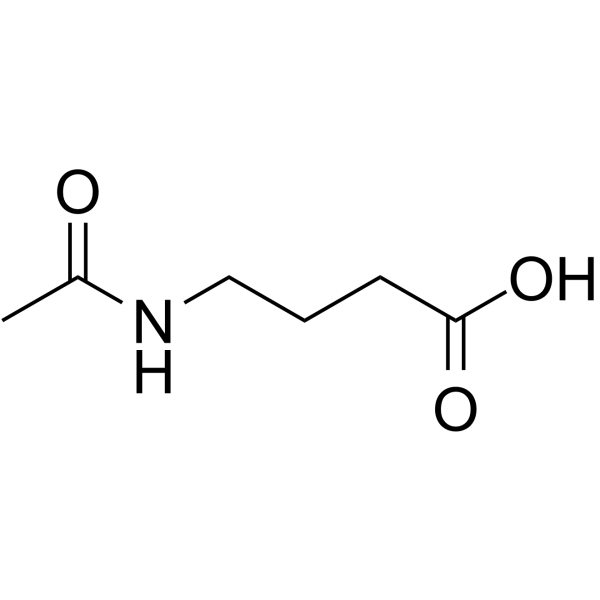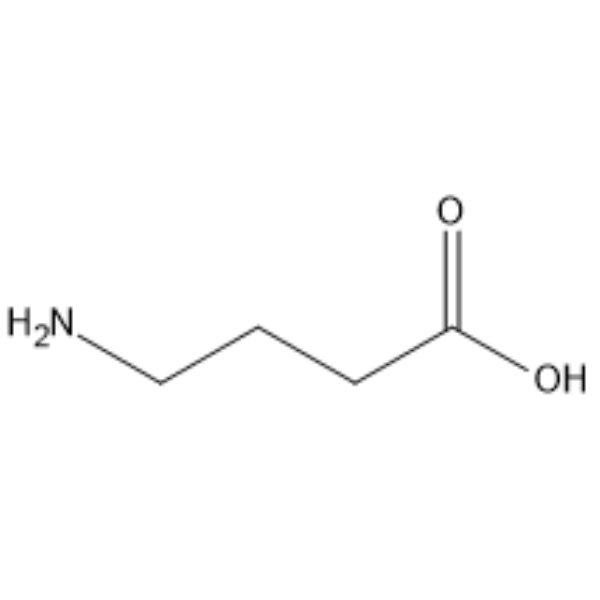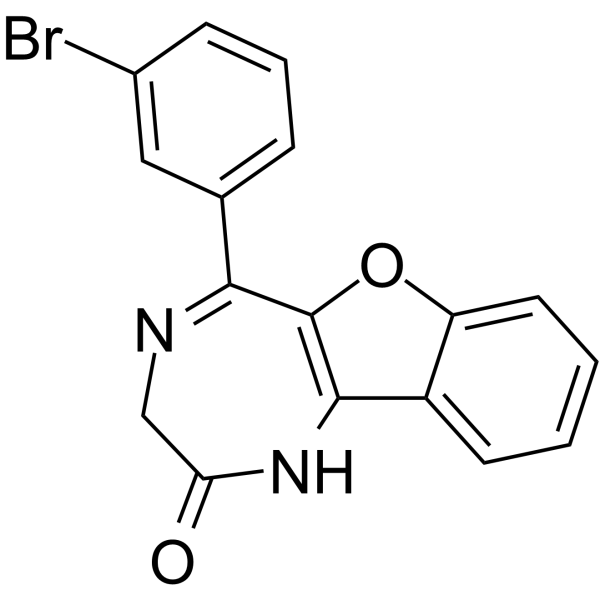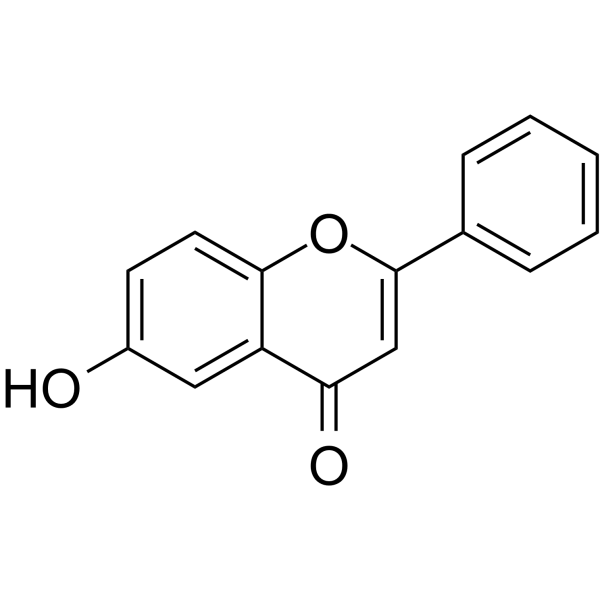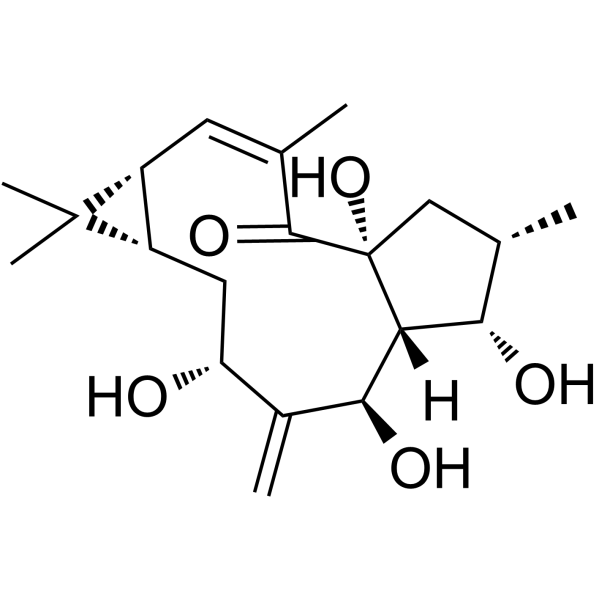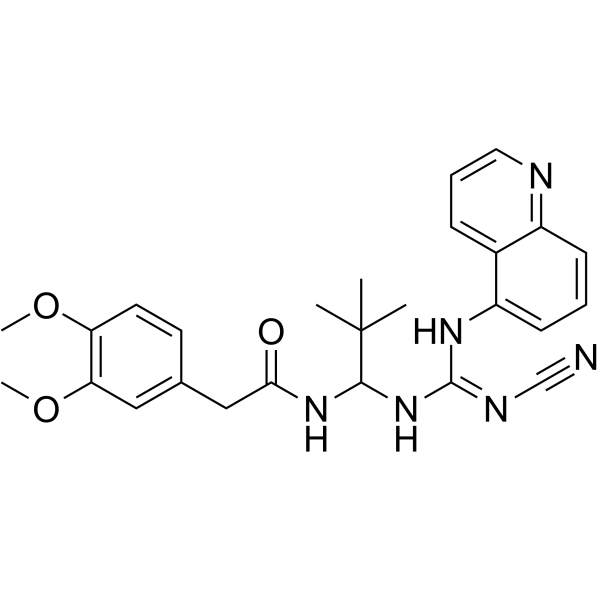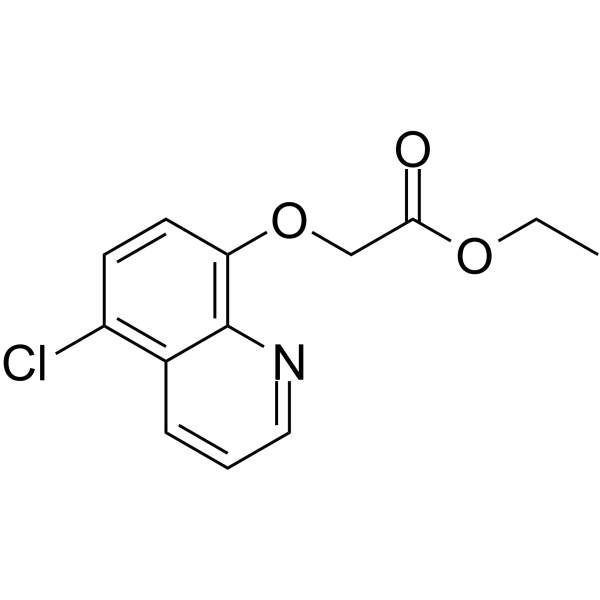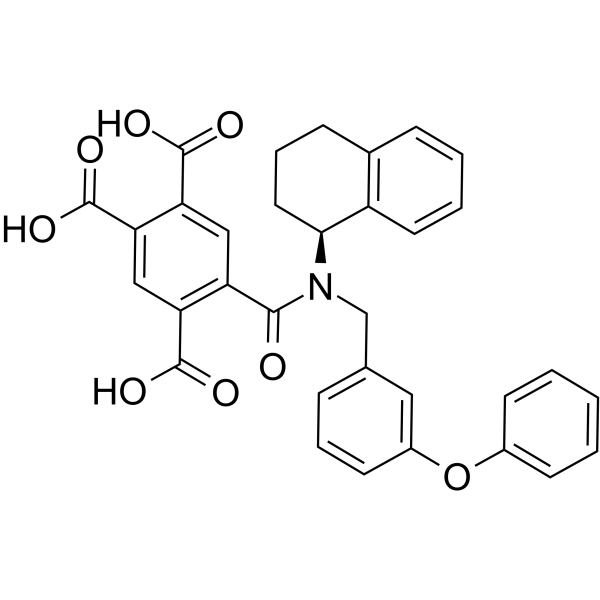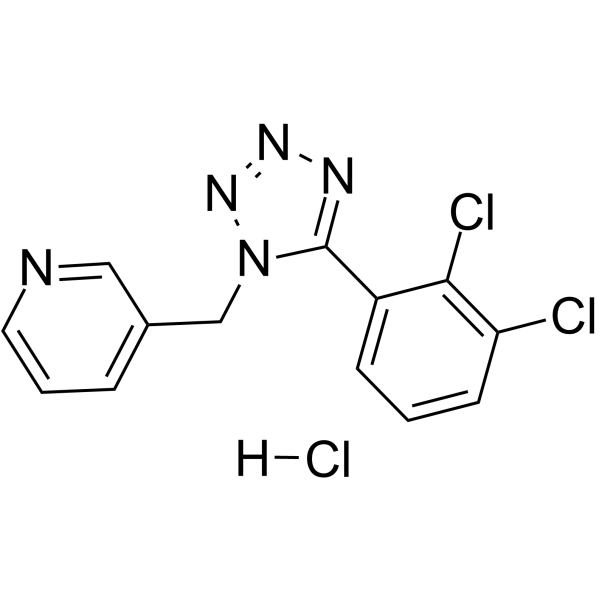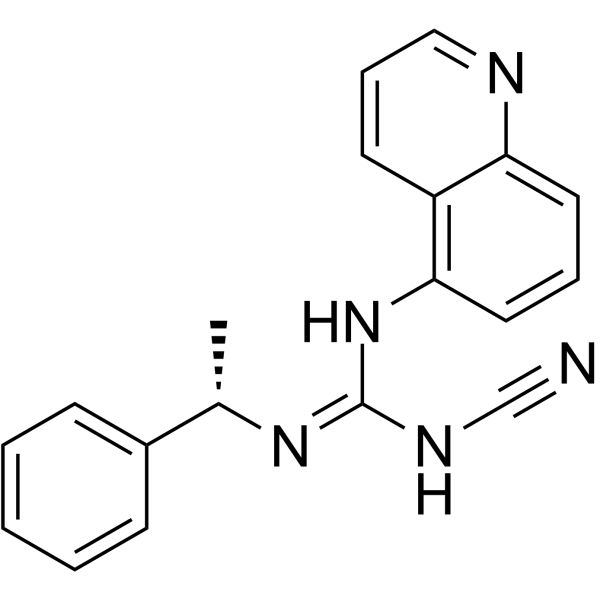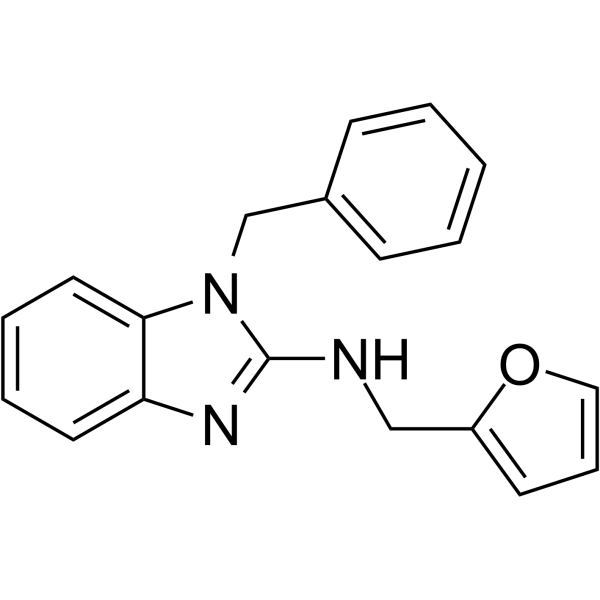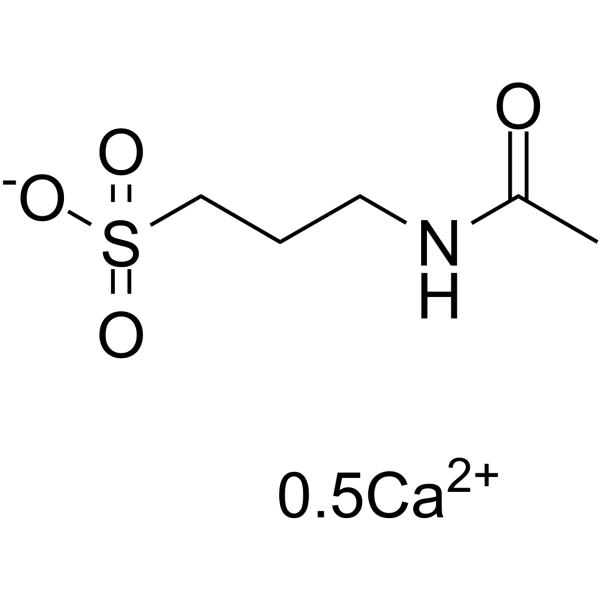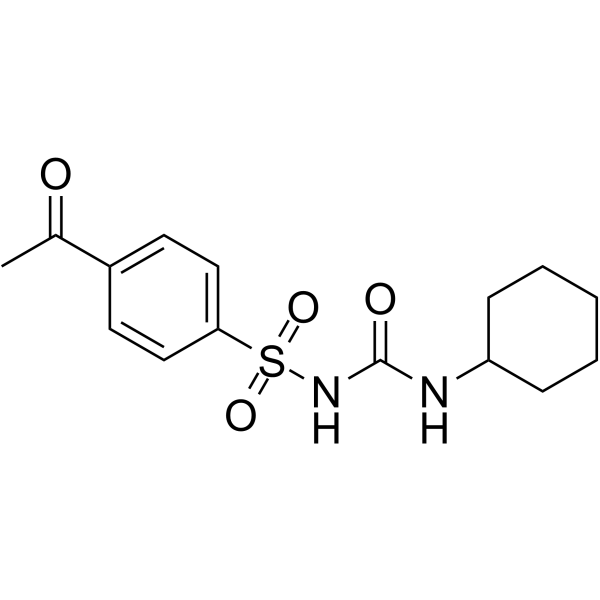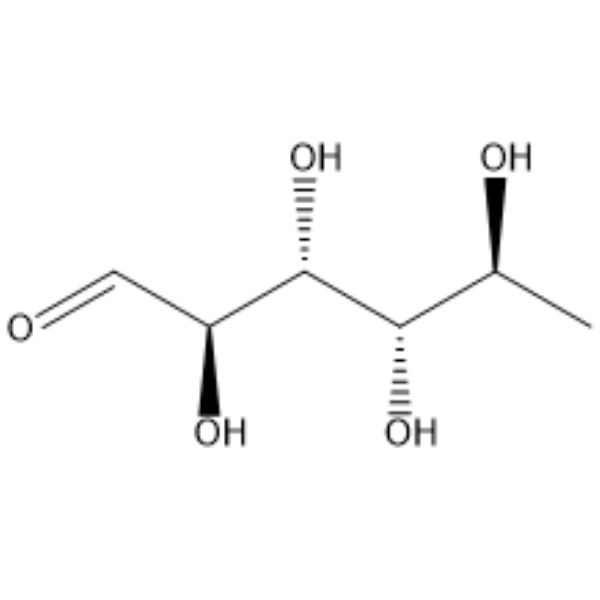|
BP15901
|
Jatrophane 2
|
|
|
|
|
2,5,7,8,9,14-Hexaacetoxy-3-benzoyloxy-15-hydroxyjatropha-6(17),11E-diene (Jatrophane 2 ) exhibits significant antifeedant activity against a generalist plant-feeding insect, the cotton bollworm (Helicoverpa armigera). Jatrophane 2 also demonstrates the most powerful inhibition of P-gp, higher than R(+)-verapamil and tariquidar in colorectal multi-drug resistant (MDR) cells (DLD1-TxR).
|
|
BP15902
|
3-Aminopropylphosphonic Acid
|
|
|
|
|
3-aminopropylphosphonic acid (3-APPA) is a phosphonic analog of GABA that acts as a partial agonist of GABAB receptors (IC50 = 1.5 μM in a radioligand binding assay).
|
|
BP15903
|
4-Acetamidobutanoic acid
|
|
|
|
|
4-Acetamidobutanoic acid can be found in blood, feces, and urine, as well as in human prostate tissue. 4-Acetamidobutanoic acid exists in all eukaryotes, ranging from yeast to humans. 4-Acetamidobutanoic acid is a GABA derivative, a product of the urea cycle and the metabolism of amino groups, and the product of NAD-linked aldehyde dehydrogenase (EC 1.2.1.3) (KEGG).
|
|
BP15904
|
γ-Aminobutyric acid
|
|
|
|
|
4-Aminobutyric acid is the most common inhibitory neurotransmitter in the central nervous system.
|
|
BP15905
|
5,2',6'-Trihydroxy-6,7,8-trimethoxyflavone
|
|
|
|
|
5,2',6'-Trihydroxy-6,7,8-trimethoxyflavone (ED 50 =4.5 ug/ml ) shows cytotoxicity against L1210 cell and has inhibiting effects on ATPase from the cell.
|
|
BP15906
|
5-BDBD
|
|
|
|
|
5-BDBD is a potent and selective P2X4 receptor antagonist. 5-BDBD inhibits rP2X4R-mediated currents with an IC50 of 0.75 μM. 5-BDBD completely blocked the basal and acute hyperalgesia induced by NTG.
|
|
BP15907
|
6-Hydroxyflavone
|
|
|
|
|
6-Hydroxyflavone is a noncompetitive inhibitors of cytochrome P450 2C9. It is a flavone, a type of chemical compound. It is reported in leaves of Barleria prionitis Linn. (a common Acanthaceae from India). 6-Hydroxyflavone may have a potential as a therapeutic drug capable for the treatment of anxiety-like disorders.
|
|
BP15908
|
7beta-Hydroxylathyrol
|
|
|
|
|
7β-Hydroxylathyrol is a diterpenoid extract from the seed oil of Caper Spurge and displays P-gp inhibition resulting in cytotoxic properties.
|
|
BP15909
|
A 425619
|
|
|
|
|
A 425619 is a potent TRPV1 antagonist
|
|
BP15910
|
A-740003
|
|
|
|
|
A 740003 is an effective and specific P2X7 receptor antagonist (IC50: 18/40 nM, for rat/human). It can reduce nociception in animal models of persistent neuropathic and inflammatory pain, and also reduce neuroblastoma tumor growth in mice.
|
|
BP15911
|
A2793
|
|
|
|
|
A2793 is a chemical compound
|
|
BP15912
|
A-317491
|
|
|
|
|
A-317491 is a non-nucleotide P2X3 ( Ki: 22 nM) and P2X2/3 receptor (Ki: 9 nM) antagonist, which inhibits calcium flux mediated by the receptors.
|
|
BP15913
|
A 438079 hydrochloride
|
|
|
|
|
A-438079 hydrochloride is a potent and selective P2X7 receptor antagonist with pIC50 of 6.9.
|
|
BP15914
|
A-804598
|
|
|
|
|
A-804598 is a competitive and selective P2X7 receptor antagonist (IC50: 10 nM, rat; 9 nM, mouse; 11 nM, human).
|
|
BP15915
|
Abscisic Acid
|
|
|
|
|
Abscisic Acid is a plant hormone, which is involved in many plant developmental processes, modulates ion homeostasis and metabolism, and inhibits germination and seedling growth.
|
|
BP15916
|
ABT 102
|
|
|
|
|
ABT 102 is a selective antagonist of transient receptor potential vanilloid 1 (TRPV1) receptor.
|
|
BP15917
|
AC1903
|
|
|
|
|
AC1903 is a specific inhibitor of TRPC5 channel, and has been shown to suppress severe proteinuria and prevent podocyte loss.
|
|
BP15918
|
Acamprosate calcium
|
|
|
|
|
Acamprosate calcium is a GABA receptor agonist and modulator of glutamatergic systems, used for treating alcohol dependence.
|
|
BP15919
|
Acetohexamide
|
|
|
|
|
Acetohexamide is an intermediate-acting, first-generation sulfonylurea with hypoglycemic activity. It inhibits sulfonylurea receptor 1 (SUR1) linked to the inwardly rectifying potassium channel (KIR6.2) with Ki values of 22.9 and 14.2 μM in HEK293 cells transfected with the human receptor and in rat brain, respectively. Acetohexamide is metabolized in the liver to its active metabolite hydroxyhexamide.
|
|
BP15920
|
Rhamnose
|
|
|
|
|
Addition of the Rhamnose-rich polysaccharide, RROP-1, to normal human dermal fibroblasts (NHDFs) and human endothelial cells produced a dose-dependent stimulation of the calcium-signaling pathway, inducing fast and transient increases in Ca2 influx and intracellular free Ca2 level.
|


